Pandemic paradox: during a divided world, universities unify to combat COVID-19
By Kunal Chan Mehta | Article Date: 24 April 2020
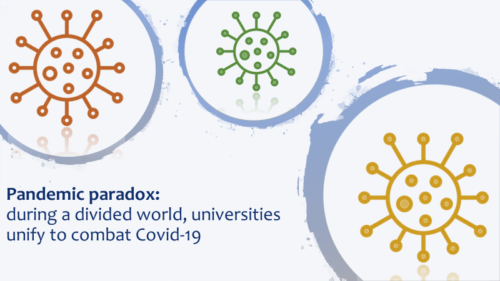
Post-Covid-19, the world is divided by political opinion; yet, as best practice, the brightest university minds unite as one – in true Dunkirk spirit – to connect the void. From risking their lives for others, working perpetually and virtually, freely sharing research and not expecting to make profit – never has the history of Higher Education seen – or perhaps will see – such global unity from university staff and students.
Covid-19 versus Global Academia
Whilst we are all paralysed by Covid-19 uncertainty, we are, now more than ever, reliant on timely advice and expertise. And evidently, universities are the foremost institutions when it comes to research, innovation and experience of interpreting world-class research into real world outcomes. To emphasise, the very reason why the UK went into – and remains – in lockdown is because of a study from Imperial College London.
Despite global political division, during this era of global need, academic researchers have become progressively connected and co-dependent, disregarding conventional concerns such as academic credit and wealth creation. Irina Barariu, LSST’s SU President, said: ‘Whilst many businesses and luminaries are asking themselves questions about how relevant they are in these times of challenge, around the world an army of unsung Higher Education heroes are battling to defend us from Covid-19. Irina added: ‘However, at present, everyone in research is looking for answers that they cannot find because nobody yet knows them.’
Owing to the political divisions and governmental rifts with international organisations such as the WHO, university research is now stepping in to fill the void. Thus, university research output has never been more crucial or more challenging – notably during lockdown and social distancing measures. Despite the substantial impact on the sector, universities have become regarded as crucial contributors to factual dialogue.
Speaking with LSST about the scale of the international response effort, Rachel Bridges, Global Health Communications Manager, United Nations Foundation, said: ‘The WHO estimates a need of $675 million through just the end of April 2020 to respond to the Covid-19 pandemic. Given the global spread of the disease, this need is estimated to grow by nearly ten-fold through the end of the year.’
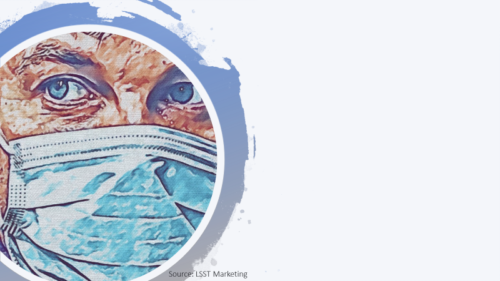
Boosting the hospital frontline
LSST’s university partners – the University of West London (UWL), London Metropolitan University; Buckinghamshire New University – are playing meaningful roles in combating Covid-19. To date, a UWL student midwife is bringing together inspiring stories during the pandemic through a blog series reaching out to students across the world. A London Metropolitan University Immunology Professor twice appeared on CNN to share expert opinion about the search for a Covid-19 vaccination and highlight personal protective equipment (PPE) issues. Amongst a series of ongoing support measures, Buckinghamshire New University is providing around 13,500 items of much-needed personal protective equipment (PPE) to the NHS to protect staff on the front-line.
Professor David Lomas, Vice Provost (Health), UCL, states that researchers must ‘stand ready’ to join the NHS during the Covid-19 pandemic and step up and deliver to assist the national crisis. As coronavirus spreads around the world, UCL experts are taking a prominent role in advancing public knowledge about the virus by advising world leaders and rapidly researching new ways of tackling Covid-19.
Also, King’s College London has allocated nurses, academics and researchers to focus on supporting the response to the pandemic and boosting NHS resources. Louise Rose, KCL’s Professor of Critical Care Nursing, is pausing her entire academic work at King’s to support intensive care staff at St Thomas’ Hospital, caring for numerous patients and training nurses and others as they treat patients with Covid-19.
All the while, a growing number of university medical students have volunteered to join the NHS effort to fight the Covid-19 pandemic. Oxford University’s medical students started supporting patients voluntarily in local hospitals before the national lockdown, as early as 20 March. Dr Lois Brand, Associate Director of Clinical Studies, Oxford University, said: ‘The emergency department team has been overwhelmed by the incredible response of the final year students to our request for volunteers.’
Navigating the pandemic’s impact on hospital footfall, Stanford University has created a calculator that predicts whether and when a hospital or a community is about to be overwhelmed. Kevin Schulman, Professor of Medicine at Stanford University, initiated the project and utilised the skills of his students – over virtual platforms during lockdown – to swiftly deliver on the concept.
Speaking with LSST about hospital-related Covid-19 research, world renowned Medical Engineering and Microbiology expert Professor Lee Gehrke, who works at both Massachusetts Institute of Technology (MIT) and Harvard University, said: ‘The one part of this complex issue that I can comment on is the availability of low cost diagnostics that can be manufactured quickly and distributed widely for ability to all who need them, no matter their geographic location or financial status. Diagnostics are needed for early diagnosis to identify the pathogen, define a treatment plan, and separate infected from uninfected.’
Concerning research hindrances, Professor Gehrke added: ‘The main issues holding our diagnostic research back are the availability of curated human samples (nasopharyngeal swabs, throat swabs, serum; saliva) that can be used for validating our test. ‘Curated’ samples mean that they have been tested using a ‘gold standard’ method against which our device can be validated.’

Social distancing
The University of Oxford is gathering volunteers from across the globe in order to look into how social distancing has affected their lives during the Covid-19 pandemic. Dr Bahar Tuncgenc, from the University of Nottingham’s School of Psychology and the Social Body Lab at the University of Oxford, leading the study, said: ‘Keeping distance from our loved ones, especially in such uncertain and threatening times, is an unusual and at times difficult way to be asked to live. We want to find out how these distancing measures have been affecting people’s daily lives and what they may have been doing to help get through it.’
Furthermore, scientists at the University of Cambridge have found an association between living in an area of England with high levels of air pollution and the severity of Covid-19. The researchers have openly and freely shared their findings in their report on MedRXiv recognising the urgent need to share pandemic information to help global response efforts.
A separate study, led by Professor William Sutherland, University of Cambridge, has already identified an astonishing 275 ways to reduce transmission of the coronavirus after the national lockdown (no date has been set at the time of writing). The study offers a shortlist of the most appropriate options for a phased return to normality and should be considered in the context of effectiveness, cost, practicality and fairness.
Contrastingly, Stanford University researchers have examined why people are not practicing in the recommendation to social distance. Jeff Hancock, Stanford’s globally renowned Professor of Communication, referring to US regions, said: ‘Clearly different parts of the population have different kinds of concerns and reasons for not social distancing, and government communication should address those. I hope that governments use [our] findings and recommendations to improve how they communicate public health orders for sheltering-in-place so that we can get as much compliance as possible.’
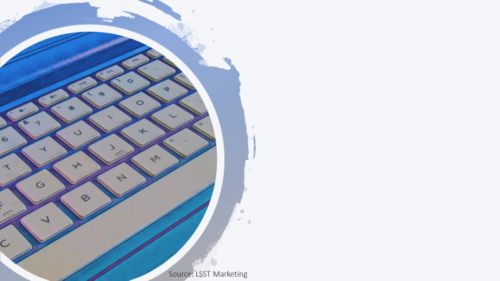
Covid-19 versus Technology
Although contested, the idea of an app to track and trace those who have been exposed to Covid-19 is one of many emerging at break-neck speed as researchers focus their combined efforts to combat Covid-19.
Speaking directly with LSST about his latest research on creating an app for Covid-19 detection and prevention, Professor Christophe [sic] Fraser, Oxford University, said: ‘Coronavirus is unlike previous epidemics and requires multiple inter-dependent containment strategies. Our analysis suggests that almost half of coronavirus transmissions occur in the very early phase of infection, before symptoms appear, so we need a fast and effective mobile app for alerting people who have been exposed. Our mathematical modelling suggests that traditional public health contact tracing methods cannot keep up with the virus.’
Highlighting constraints, Professor Fraser continued: ‘Current strategies are not working fast enough to intercept transmission of coronavirus. To effectively tackle this pandemic, we need to harness 21st century technology. Our research makes the case for a mobile application that accelerates our ability to trace infected people and provides vital information that keeps communities safe from this pandemic.’
Stanford University students raised app privacy concerns as early as February 2020 in an online post and rapidly set out ways to to create a smartphone-based app that would allow people who tested positive for Covid-19 to anonymously alert others whom they might have unwittingly infected. The post elicited help from scholars across the world and the result: Covid Watch – a bootstrapped, international, non-profit built around 15 core contributors, and nearly 200 part-time volunteers, with an advisory contribution by Stanford University’s Julie Parsonnet, a world leading Professor in Medicine.
MIT research discovered that Bluetooth signals from smartphones could automate Covid-19 contact tracing while preserving privacy. In turn, a system that enables smartphones to transmit ‘chirps’ to nearby devices could notify people if they have been near an infected person. Ron Rivest, MIT Institute Professor and principal investigator of the project, said: ‘For these broadcasts, we’re using cryptographic techniques to generate random, rotating numbers that are not just anonymous, but pseudonymous, constantly changing their ‘ID,’ and that can’t be traced back to an individual.’ Professor Rivest and his students have also, full-heartedly, volunteered to play a central role with other efforts around the world to develop similar, privacy-preserving contact-tracing systems.
Also, intriguingly, Professor Markus Buehler at MIT and his team used artificial intelligence to transform a model of the biological structure of the Covid-19 virus, into interwoven melodies in a classical musical composition. Professor Buehler, who believes the tune offers a more intuitive way for people to comprehend the virus, said: ‘You would need many different images, many different magnifications to see with your eyes, what your ears can pick up with just a couple of seconds of music’.
As more people are diagnosed with Covid-19, which causes breathing and respiratory problems, the need for more ventilators is now more apparent. Tackling this at the forefront, an interdisciplinary team of experts from King’s College London and Oxford University are creating and testing prototypes that can be quickly manufactured using university and SME workshops. Further, a consortium of companies from the UK industrial, technology and engineering industries have come together to design and manufacture ventilators.
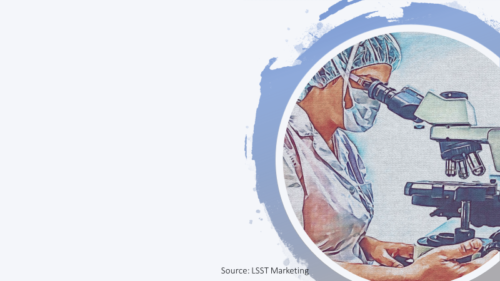
Covid-19 Vaccinations – a pandemic panacea?
According to online reports provided to LSST by the Association of the British Pharmaceutical Industry (ABPI), typically, a safe and effective vaccine will take anywhere from 10 to 15 years for development if one is starting from scratch.
Nobody can be certain that it is possible to find a Covid-19 vaccine, but the prospects are ‘very good’, according to Sarah Gilbert, Professor of Vaccinology at Oxford University, who is currently leading a number of leading clinical trials. Comparatively, in 2014, it was Oxford University that helped develop a vaccine for the Ebola epidemic in West Africa.
Speaking with LSST about whether research should be focusing on Covid-19 drugs more than vaccinations – or both equally, Dr Evelyn Ling, hospitalist at Stanford Medicine and one of the sub-investigators of the clinical trials at Stanford University, said: ‘Yes, we should be performing studies for both an antiviral drug and vaccine. The antiviral drug will treat those with Covid-19 and the vaccine will give immunity to those without Covid-19.’
Regarding a polarised vaccination focus, Dr Jeremy Howick, a globally acclaimed Oxford University Philosopher and Medical Researcher, told LSST: ‘There are a lot of unknowns. However, it seems that even someone who recovers from the virus and generates their own – endogenous – antibodies, may become re-infected. Whereas, again, it seems, that the antibodies generated by vaccines last longer.’
Dr Howick went on to highlight the unity amongst universities: ‘Covid-19 is bringing people together. The virus does not respect borders or institutional walls. So many people are coming together to help each other, and this includes university collaborations. Just last week, I have been asked by researchers in London, Australia, and India to collaborate.’
Thus, given the urgency of the situation, it is most likely that universities will need to fuse government and industry requirements to balance the risks and benefits of any vaccines produced and administered. This indicates that the first vaccine produced may not be the most effective. Vaccine development is a famously slow process; however, the possibility of producing a viable candidate would likely have been impossible if it were not for the support of a broad international university effort.
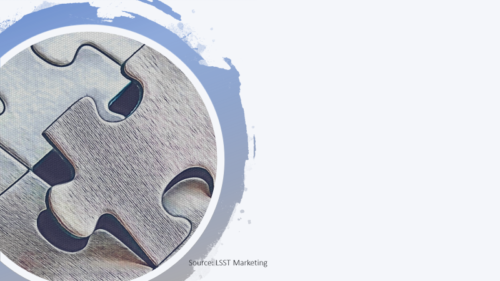
Universities creating a Covid-19 legacy
In the face of political divide, universities continue to answer vital research questions and evaluate results in order to complete missing pieces of the Covid-19 puzzle. No single university can answer it alone so academic work must be globally connected – but in a sustainable way.
Further, universities need to recognise – and remember – that a great Covid-19 research paper alone is not enough. Plausible development, mobilisation and exposure is needed. And then, the research must set agendas, create debates, inform leaders, and make a meaningful difference.
Amid all the uncertainty and shock, Covid-19 has proven the ethical responsibilities of universities as stalwarts of much needed independent and credible information. History will never forget the rapid and remarkable public health response and collective contribution of every university staff and student. Ultimately, everyone will remember that universities are invaluable in a public health crisis.
• The views expressed are those of the author and contributors and not necessarily those of LSST.
• LSST is not responsible for content on linked and external sites.
• At the time of writing, the situation regarding what is understood about Covid-19 is fast developing and whilst every effort has been made to check the currency of the aforementioned links, it is advised to check websites directly in case of any updates.
Please email kunal.mehta@lsst.ac for any questions or comments or to find out more about the Covid-19 research mentioned in the article.
Please share your comments below.
39 thoughts on “Pandemic paradox: during a divided world, universities unify to combat COVID-19”
Comments are closed.





A very great article!
Thanks for this Beniamin. Keep safe.